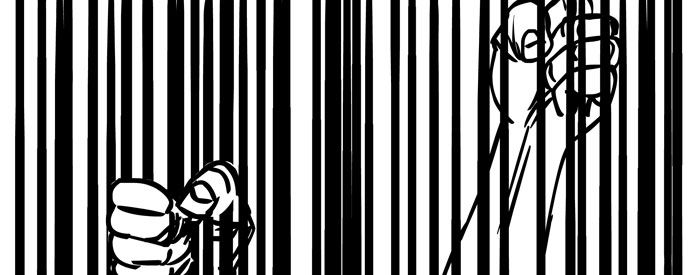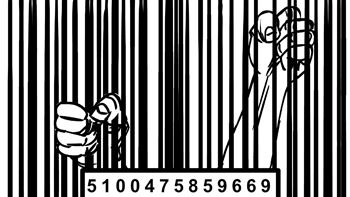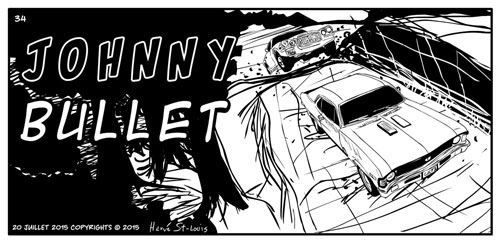Comics /
Digital Comics
Web Comics Piracy Is a Thing

By Hervé St-Louis
August 18, 2015 - 01:11
Web comics creators are part of the sharing economy. The sharing economy sees individuals generating products and services that are shared through information networks for no charge. Many cartoonists in the sharing economy gladly share their comics online without necessarily forfeiting their copyrights and exclusive ownership to their own work. But what happens when entrepreneurial profiteers resell Web comics to others without the authorization or knowledge of original creators?
This was the case with MangaforAdult.com in early August 2015. MangaforAdult is a Web site that sells pornographic comics using unauthorized material taken from Web comics portals. Many of the Web comics stolen by the Indonesian owner of MangaforAdult are not even pornographic. They are just popular comics found on Web comics platforms like Tapastic. When MangaforAdult’s activity was first spotted in early August 2015, I helped several Tapastic members get the site shutdown by the American Internet service provider (ISP) used by the fraudsters.
American ISP Digital Ocean took down the site after hesitating and asking members to go through the effort of producing a gruelling Digital Millennium Copyright Act (DMCA) take down notice. At the time, I felt that Digital Ocean was being overly procedural in the face of what was clearly and unequivocally a case of copyrights infringement. More responsive ISPs would have taken the site down quickly, and then checked the facts without asking bunch of amateur teenage cartoonists to prove the merit of their case.
As expected, MangaforAdult is back elsewhere. All they had to do was to repost their back up on some other poor ISP who doesn’t care too much about new clients who appear to be ejected every few weeks. It is up to the teenage cartoonists on Tapastic, Comic Fury, Smart Jeeves and The Duck to repeatedly get MangaforAdult shut down. Nothing stops MangaforAdult from changing domain name once they have destroyed any equity in the one they are using now.
For every MangaforAdult type fraudster, that the comic public knows about, there may be a thousands more that have not been found yet. How many comic created by Web comic artists are currently reprinted in comics in parts of Asia or Nigeria along with better known pirated comics from Japanese, European, and North American publishers?
All Web comics creators can do is to be proactive. Web comics portals attract fraudsters because many comics are concentrated in the same place. If the operators of these sites are not careful, the contents they host can easily be swallowed by automated bots programmed by crooks like the people behind MangaforAdult. Operators of Web comics portals must be able to block robots that systematically grab contents from their sites, even if that means limiting genuine bots and spiders like those belonging to search engines Google, Bing, Yahoo and DuckDuckGo.
Popular blog and content management systems like the ComicPress plug in for WordPress can also be problematic. Creating a script that pulls contents from sites using ComicPress is easy enough, especially if a known security hole exists. Users should make sure that they use the most recent version of the script.
Comic creators should also be more careful and insert viewable watermarks that clearly indicate their copyrights. Watermarks will not deter fraudsters, but it will inform the public of who really owns the material being viewed. Another strategy is to upload comics of different formats on different platforms. For example, at ComicBookBin, there are larger versions of my Web comic
Johnny Bullet. Every other site has a smaller version. If someone pirates the large version of Johnny Bullet, I know where they took it from.
The last thing that everybody needs to do regarding comics piracy is to understand that all piracy matters. Many comic fans think that pirating comics from larger publishers is different than pirating the comic of a local cartoonist. Too many fans believe that they have the right to pirate comics they did not buy. For example, scanlation, translated original mangas are part of the piracy culture that allows fraudsters like MangaforAdult to know that there is a market of their pirated comics. Fans who pirate comics are often quick to justify their piracy practices.
Regardless of your opinions about the inflated numbers from Hollywood majors on piracy, when promising and new comic creators’ work is copied illegally, the problem is serious and cannot be dismissed. Through our media consuming practices, we are all responsible for Web comics piracy.
Last Updated: January 17, 2025 - 08:20


